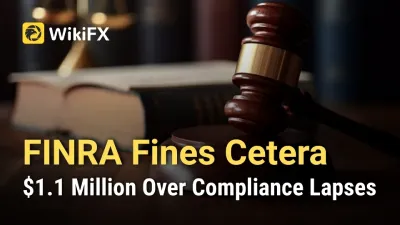Scrolled, Clicked, Lost RM166,000: Factory Worker Trapped by Online Investment Scam
A woman employed at a cake factory has lost her life savings after being lured into a fictitious investment scheme by a man she met on social media
简体中文
繁體中文
English
Pусский
日本語
ภาษาไทย
Tiếng Việt
Bahasa Indonesia
Español
हिन्दी
Filippiiniläinen
Français
Deutsch
Português
Türkçe
한국어
العربية
Abstract:Binance enforces stricter crypto transfer rules for South African users starting April 30, requiring sender and beneficiary details for compliance.

On April 22, Binance, a leading cryptocurrency exchange, revealed plans to implement stricter rules for crypto transfers involving South African users. This shift, driven by local regulatory demands, will reshape how deposits and withdrawals function on the platform. Set to begin on April 30, these changes will require users to provide more detailed information during transactions, with a mandatory account re-login starting April 24.
Binance explained the move in a statement: “In adherence to local regulatory requirements, Binance will gradually introduce changes to crypto withdrawal and deposit procedures for South African users to make sure we continue operating in full compliance with the local requirements.” The goal is clear—maintain lawful operations while adapting to South Africas evolving financial oversight.

For incoming crypto transfers, recipients must now disclose the sender‘s details. For withdrawals, users will need to submit beneficiary information, including full name, country of residence, and, if applicable, the destination exchange’s name. Binance offered a practical exception for personal transfers: “If you are sending assets to yourself on another exchange, you will only need to provide the name of the receiving crypto exchange.” This nuance shows an effort to balance compliance with user convenience.
The exchange is embedding these requirements directly into its interface. Starting April 30, pop-up prompts will appear during deposit and withdrawal attempts, collecting the necessary data before transactions can proceed. Binance assured users that these updates are limited to crypto transfer operations, leaving other platform features untouched.
While Binance didn‘t hint at expanding these measures globally, the South African rollout aligns with its broader compliance push. In India, for example, the exchange recently mandated the re-verification of user identities to meet anti-money laundering (AML) standards. As regulators worldwide tighten their grip on cryptocurrencies, Binance’s proactive steps signal a commitment to staying ahead of the curve while keeping services accessible. For South African users, these changes mark a new era of transparency in crypto transfers, effective in just days.

Disclaimer:
The views in this article only represent the author's personal views, and do not constitute investment advice on this platform. This platform does not guarantee the accuracy, completeness and timeliness of the information in the article, and will not be liable for any loss caused by the use of or reliance on the information in the article.

A woman employed at a cake factory has lost her life savings after being lured into a fictitious investment scheme by a man she met on social media

Entering 2026, diverging central bank policies are reshaping global FX and bond markets, while economic momentum shifts from developed economies toward India. Meanwhile, an upcoming leadership transition at the US Federal Reserve presents a key underappreciated risk that could trigger renewed volatility in interest rates and the US dollar.

FINRA fines Cetera $1.1 million for supervisory and AML compliance failures spanning several years, citing rule violations and weak oversight systems.
FINRA fines Cetera $1.1 million for supervisory and AML compliance failures spanning several years, citing rule violations and weak oversight systems.
